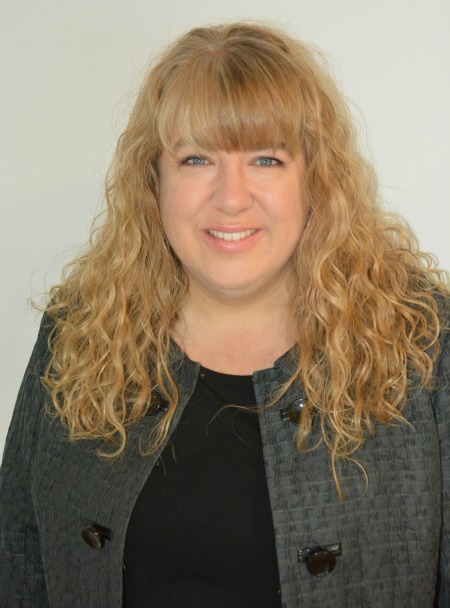
Department of Chemical and Materials Engineering professor Janet Elliott is known internationally for her research in cryobiology--she says collaborating with interdisciplinary partners is a formula for success. Elliott has been awarded a Killam Annual Professorship in recognition of her achievements.
(Edmonton) These days, Janet Elliott-one of five U of A recipients of 2015 Killam Annual Professorships-is a highly respected chemical engineering professor and a key member of a world-leading research team in the field of cryobiology.
Elliott scarcely imagined either scenario 19 years ago, when she arrived in Edmonton with a newly minted PhD. "I didn't have any degrees in chemical engineering," recalled Elliott. "I had never heard of cryobiology, either. So I've just learned all of that from my colleagues. Collaboration makes us so much stronger than the sum of our parts at this university."
Elliott had been attracted to the U of A for its strength in surface thermodynamics-still a key focus area in her research. The night before her job interview, she had dinner with chemical engineering professor Suzanne Kresta, who told her about the U of A's collaborative atmosphere, and its strength in surfaces and colloids research. "I actually phoned my husband that night-before my interview-and told him to put his CV in because I was coming here," Elliott laughed.
About a year later, Elliott found herself, purely by chance, eating lunch next to Locksley McGann, from the Department of Laboratory Medicine and Pathology. Elliott struck up a casual conversation, and fate quickly took over. "I asked Locksley, 'What do you do?' He said, 'Cryobiology.' I said, 'Oh, I've never heard of that.' He asked me what I do. I said, 'Thermodynamics,' and he said, 'Oh, our whole field needs you.' That began my adventure of cryobiology."
The term "cryobiology" may summon images from science fiction, but cryopreserved tissues play a crucial role in transplantation. "One of the steps on the way to the Edmonton Protocol (the revolutionary treatment option for type 1 diabetes) was the cryopreservation of pancreatic islets," Elliott pointed out.
"And, recently, our multidisciplinary team-myself, and Locksley McGann, and [orthopedic surgeon] Nadr Jomha, and all of our students and collaborators-cryopreserved articular cartilage of the knee."
The team's brand-new cartilage protocol-over 15 years in the making-promises to open up new frontiers in transplantation, said Elliott. Until now, human articular cartilage couldn't be stored for more than 28 days. "Cryopreserving articular cartilage-so you can have a bank of it, so it can be easily distributed, and logically co-ordinated-means you can use it for reconstructive surgeries much more widely."
Elliott is thrilled to be in the company of previous Killam recipients-including McGann, who won his own Killam in 2004, and Kresta, who won hers in 2012. "The people who have a Killam are such a collection of fantastic scholars. So, to be in that group, and interact with other people in that group, is a wonderful opportunity."
Elliott also takes pride in the Killam's balanced emphasis on teaching and research. "I have won a teaching award before, and I have won research awards before. But it's really fantastic to have an award that recognizes both aspects of scholarship."
When you teach at an institution that values both teaching and research, the two invariably feed into each other, said Elliott. "You bring your new excitement about research to the classroom, which helps inspire students about their subject material. At the same time, when students ask you questions, they make you a better communicator of your research."
As much as she loves research, said Elliott, teaching carries its own rewards. "Research problems can take 15 years to solve. But, teaching is really immediate. You go into a classroom, you have a lecture, you tell some students about entropy, and right away you can see this brilliant sparkle of understanding in their eyes."
A professor in the Department of Chemical and Materials Engineering, Elliott is one of two Killam recipients from the Faculty of Engineering this year; the other has been awarded to Department of Electrical and Computer Engineering professor Jie Chen.
Prestigious Izaak Walton Killam Memorial Scholarships were also announced recently. Graduate student Chao Li, in the Department of Civil and Environmental Engineering, Mustafa Ege Babadagli, in the Department of Mechanical Engineering, and Amin Ghazanfari, in the Department of Electrical and Computer Engineering, have been awarded the scholarships.